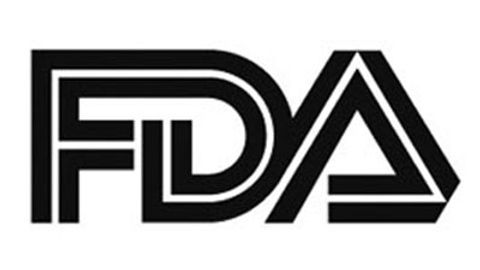FDA Approval Sought for Cabozantinib/Nivolumab in Advanced RCC
A supplemental New Drug Application was submitted to the FDA for cabozantinib plus nivolumab as treatment of patients with advanced renal cell carcinoma.

A supplemental New Drug Application (NDA) was submitted to the FDA for cabozantinib (Cabometyx) plus nivolumab (Opdivo) as treatment of patients with advanced renal cell carcinoma (RCC).1
The NDA is supported by data from the phase 3 pivotal CheckMate-9ER clinical trial of cabozantinib plus nivolumab versus sunitinib (Sutent) in patients with advanced or metastatic disease. It was recently reported that the study met it primary end point after achieving a significant improvement in progression-free survival (PFS) compared with sunitinib. Two secondary end points were also achieved including overall survival and the objective response rate.1,2
“We are excited to complete our first regulatory submission for Cabometyx in combination with an immune-checkpoint inhibitor based on the positive results from the CheckMate-9ER phase 3 pivotal trial, which showed a statistically significant and clinically meaningful benefit in the key efficacy measures of progression-free survival, overall survival and objective response rate for patients with previously untreated kidney cancer,” said Gisela Schwab, MD, president, Product Development and Medical Affairs and chief medical officer, Exelixis, in a statement.
CheckMate-9ER is an ongoing open-label, randomized, international phase 3 study. Patients in the study are randomized 1:1 to received either cabozantinib plus nivolumab or sunitinib monotherapy. The study us a collaborative effort between Bristol Myers Squibb, and Ono Pharmaceuticals. Exelixis, Inc is a co-founder of the study. Enrollment of 636 patients has been completed. In addition to PFS, overall survival, and objective response rate, the study is also exploringsafety determined by the incidence of adverse events (AEs) the incidence of serious AEs, the incidence of AEs leading to discontinuation of treatment, incidence of deaths, and the incidence of laboratory abnormalities.
To be eligible, patients were required to have a histological confirmation of RCC with a clear-cell component, have advanced or metastatic disease, and be naïve to systemic therapy for RCC. Patients with active central nervous system metastases, condition(s) requiring systemic treatment, and those who had a vaccination with 30 days of the start of therapy were excluded from the trial.
Cabozantinib is a VEGF, MET, and AXL inhibitor which already has FDA approval as monotherapy for the treatment of untreated and previously treated metastatic RCC. The agent is also FDA approved for the treatment of patients with HCC who have been previously treated with sorafenib (Nexavar). In addition, research has demonstrated the ability of the PD-L1 inhibitor, nivolumab as monotherapy and in combination with ipilimumab for treatment-naïve intermediate to poor-risk metastatic RCC, but there was an unmet medical need to be able to target the VEGF pathway in these patients. CheckMate-9ER set out to do this with cabozantinib plus nivolumab.1,3
Detailed results from CheckMate-9ER will be presented on September 20, 2020 during the European Society of Medical Oncology (ESMO) Virtual Congress 2020 as part of the Presidential Symposium II.1
“We expect that, if approved, the combination of Cabometyx and Opdivo will be an important new first-line treatment regimen for RCC patients who need additional therapeutic options that extend survival. We look forward to continuing to work closely with Bristol Myers Squibb and the FDA through the regulatory review process,” Schwab stated.
References:
1. Exelixis announces submission of supplemental new drug application to u.s. food and drug administration for cabometyx® (cabozantinib) in combination with opdivo® (nivolumab) for advanced renal cell carcinoma. News release. Exelixis, Inc. August 24, 2020. Accessed August 24, 2020. https://bit.ly/2CYmjnm
2. Bristol Myers Squibb and Exelixis announce positive topline results from pivotal phase 3 checkmate -9er trial evaluating opdivo® (nivolumab) in combination with cabometyx® (cabozantinib) in previously untreated advanced renal cell carcinoma. News release. Exelixis, Inc. August 24, 2020. Accessed August 24, 2020. https://bit.ly/2QmcN0w
3. Choueir TK, Apolo AB, Pwles T, et al. A phase 3, randomized, open-label study of nivolumab combined with cabozantinib vs sunitinib in patients with previously untreated advanced or metastatic renal cell carcinoma (rcc; checkmate 9er). J Clin Oncol. 36, 2018 (suppl; abstr TPS4598). doi:10.1200/JCO.2018.36.15_suppl.TPS4598
Enhancing Precision in Immunotherapy: CD8 PET-Avidity in RCC
March 1st 2024In this episode of Emerging Experts, Peter Zang, MD, highlights research on baseline CD8 lymph node avidity with 89-Zr-crefmirlimab for the treatment of patients with metastatic renal cell carcinoma and response to immunotherapy.
Listen
Beyond the First-Line: Economides on Advancing Therapies in RCC
February 1st 2024In our 4th episode of Emerging Experts, Minas P. Economides, MD, unveils the challenges and opportunities for renal cell carcinoma treatment, focusing on the lack of therapies available in the second-line setting.
Listen